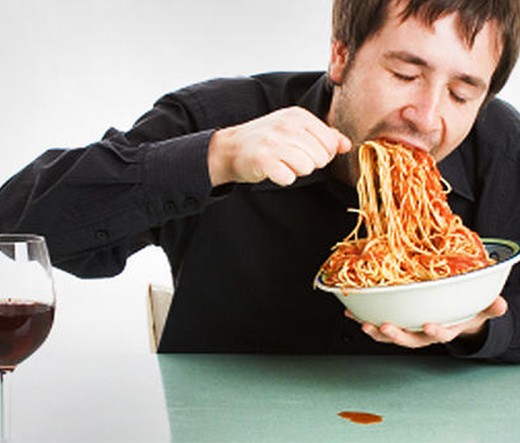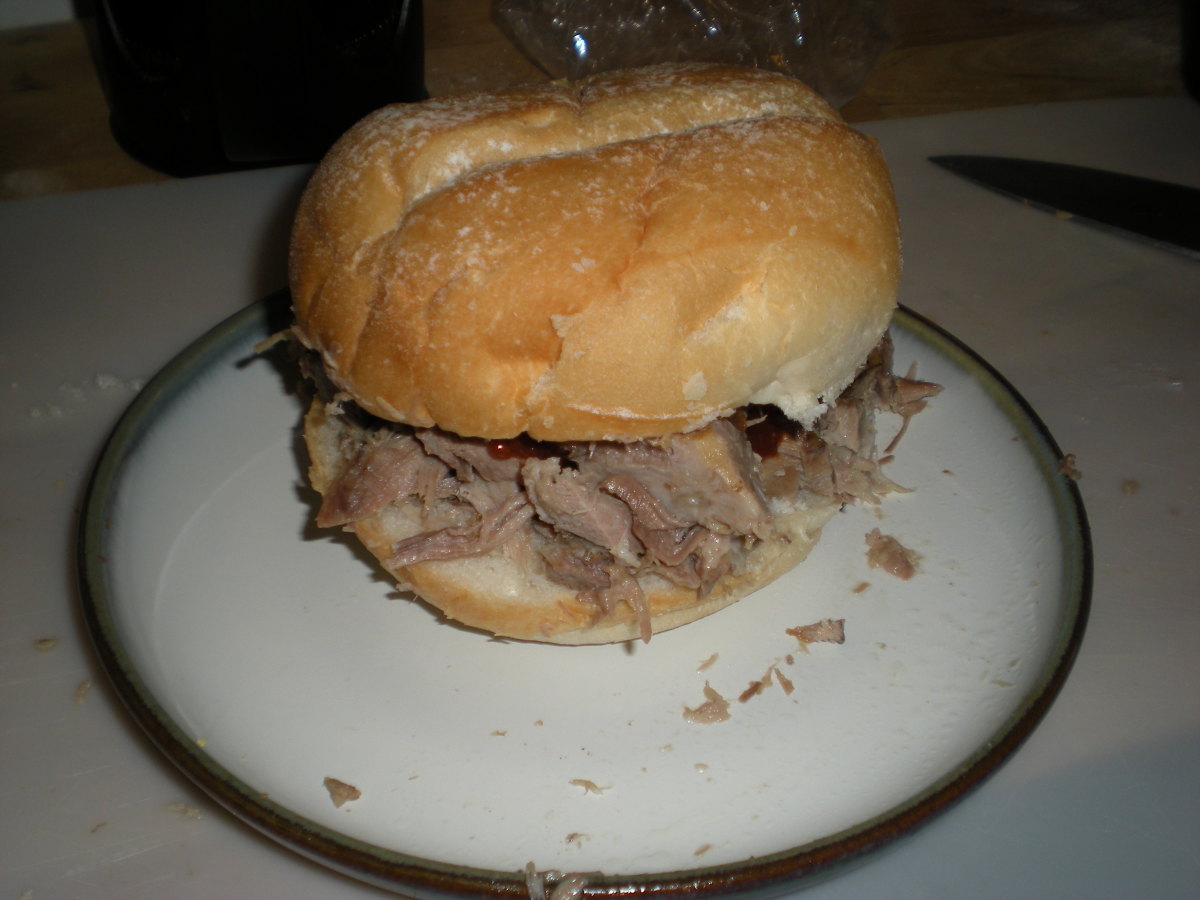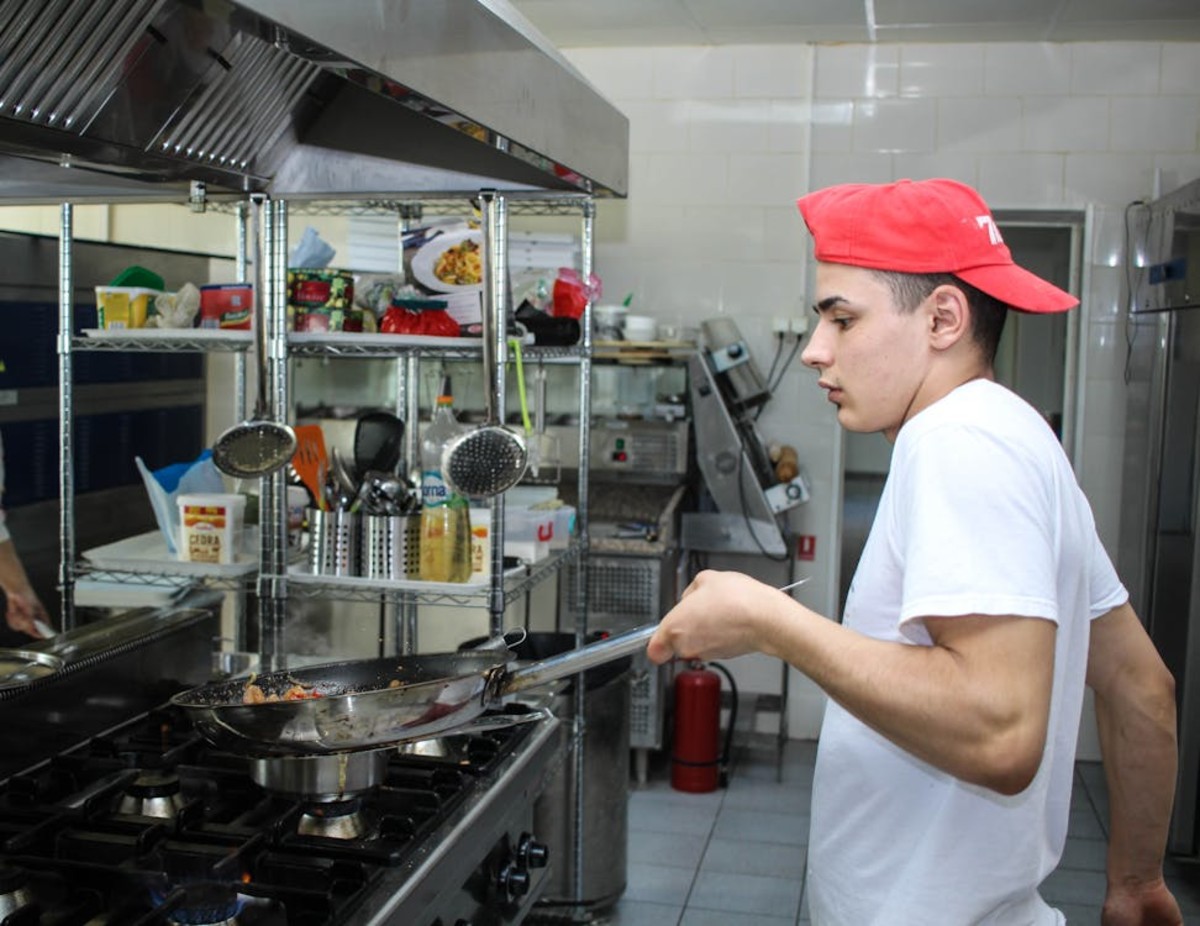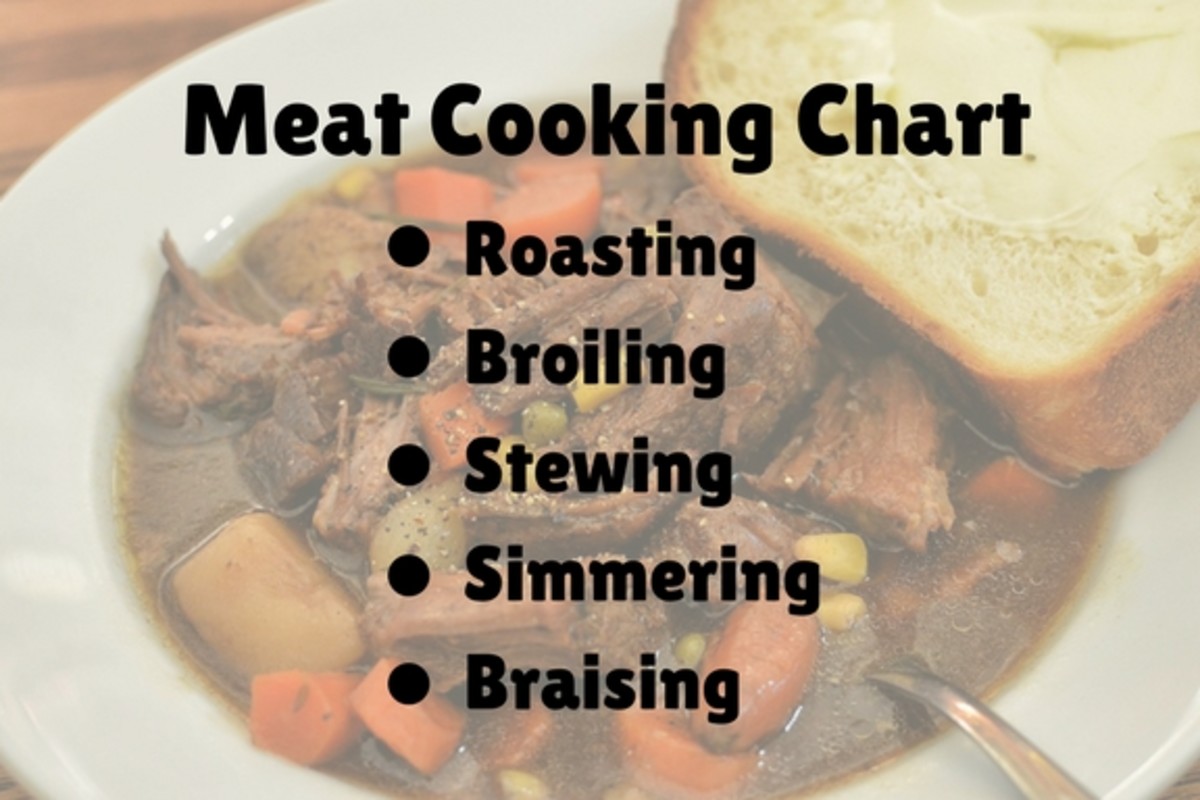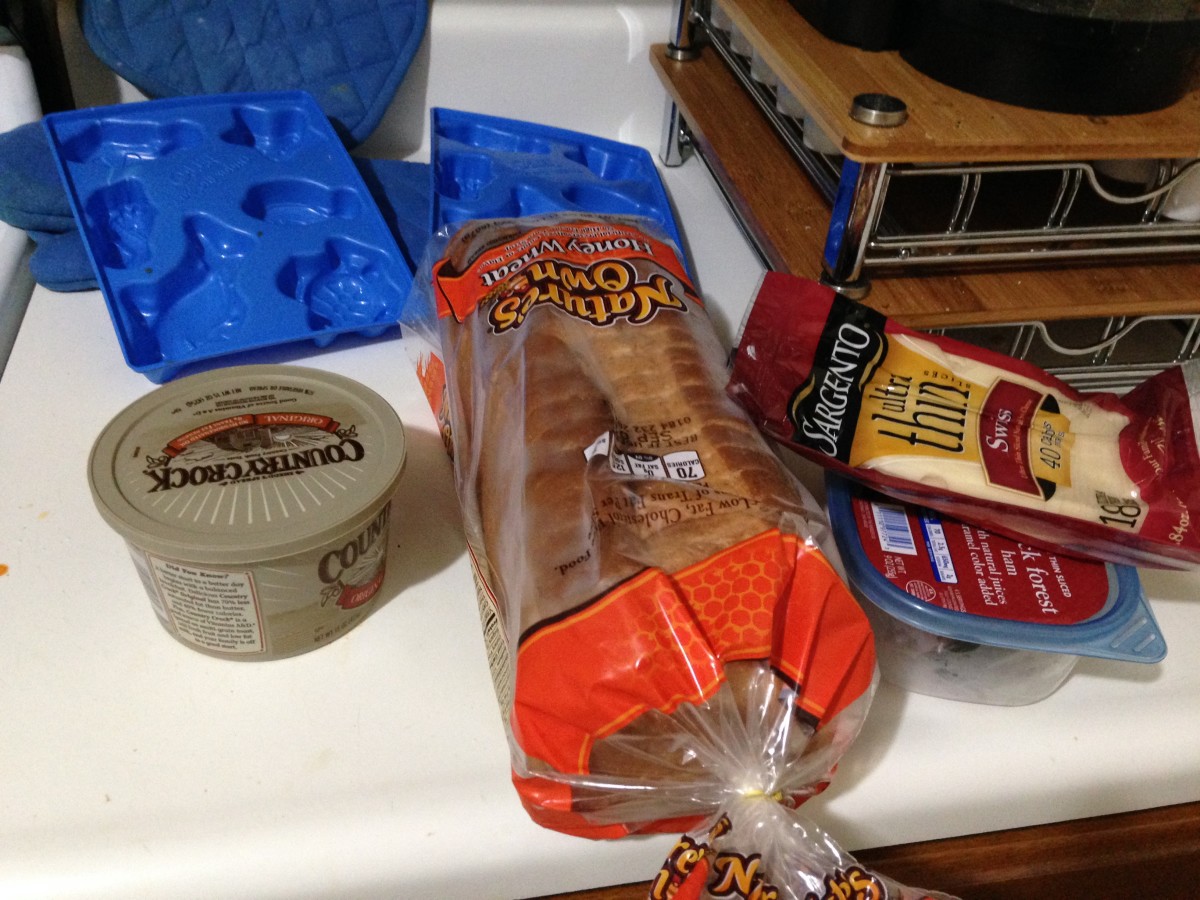Spartan Cooking 101: 5 Cooking Tips for "Minimal-Effort Sustenance"

Priorities Are Everything
"Anthony Bourdain is spinning in his grave."
I looked up from my lunch. She was staring at the Tupperware container in front of me with the same look you might give roadkill, or compost.
"I just needed food. This is food." I shoveled another bite into my mouth. "It's got spices and stuff in it. It's fine."
She shook her head, and went back to carefully unpacking her lunch from her tote. A single-serving of lemon-infused extra virgin olive oil emerged, followed by a vial of balsamic vinegar, a beautifully-crafted salad bursting with exotic greens I didn't recognize, and an entree of carefully-broiled salmon in a delicate ginger-soy marinade, topped with candied walnut and honey glaze. Red velvet mini-cupcake for dessert.
"How long did it take you to make that?" I asked her.
"Like an hour," she said. "It's super easy."
"For one meal?"
"Of course. The salad gets wilty if you make it more than 5 hours before you eat it."
"And you do this every day?"
"Well, this is only for lunch. I cook breakfast and dinner too." She shot me another look before sprinkling olive oil on her arugula, or kale, or whatever. "Don't you?"
I looked back at my lunch. Canned beans, frozen broccoli, brown rice, frozen chicken breast, ground beef, and chili spice packets, all mixed together. Grated cheddar cheese on top. Baby carrots piled off to one side. An orange for dessert. I had seven other identical containers at home, and seven other oranges.
"This is basically what I eat all day. Every hour or so, whenever I get hungry," I said.
"You eat the same thing all day?" She looked shocked.
"Well, yeah. Pretty much all week. I froze some too, so I'm set for a while." I waggled my fork at Carrot Corner. "It's healthy. Got all the basics. Fruits, veggies, protein, good carbs, everything. Just threw it all in a crock pot on Sunday and I woke up on Monday morning with food. Took me like 20 minutes for two weeks."
Pity crept into her revolted expression.
"You're a caveman. That's not food, that's...Bachelor Slop. Cooking's not hard, you could eat so much better food. Do you hate your taste buds or are you just insanely lazy?"
I shrugged. "This doesn't bother me, I like the way it tastes." I swallowed the last bite and started peeling my orange. "21 hours to prepare a week's worth of food, versus 20 minutes. It's not lazy, it's just simple and efficient."
She rolled her eyes, and went back to fussing with her salmon drizzle.
I rolled mine, and got back to typing on my laptop.
One of us wasn't making a lot of sense.

...And The Priority is TIME
Since this article is ultimately all about efficiency, let's be clear: if you're a self-professed Foodie, culinary professional, or even an average cook who wants to be better, this article isn't for you.
Seriously. You aren't going to like it here.
You are extremely impressive, and I can't express how much I admire your skills and sophistication. But allowing you to keep reading without a warning would be like taking your grandmother for a tour of the Red Light District in Amsterdam.
No, these nuggets of field-tested guerrilla cooking I'm imparting are meant for a culinary crowd that's more Neanderthal than Neapolitan. Bachelors*, college students, grad students, even happily attached people forced to forage for themselves if their Foodie partner is out of town.
In short: people for whom daily feeding is inconvenient, and an unacceptable Time Suck. Simplicity is beauty. All unnecessary flourishes are to be ruthlessly eliminated.
For this crowd, flavor is an afterthought, not the principal goal. Food has one principal function, really, which is to keep you from dying for as long as possible. Therefore, any fussing about with Zesting, Garnishing, or Spritzing with day-to-day cooking is like wearing a tuxedo to the gym.
What is far more important to us is Time. Time is non-renewable. Time is elusive. Time is always slipping away from us, always running out. Spending any extra time on something as simple as "Not Dying" is, therefore, unacceptable.
To the untrained (e.g. "civilized") eye, this just looks like pure laziness (hence the classic bachelor/college student/grad student stereotype).
Nothing could be farther from the truth. This is just efficient allocation of time.
Hence, Spartan Cooking 101. Without further ado, here are the 5 most important points to maximizing your output-to-input ratio in the kitchen.
Will following these points make you a good cook?
Absolutely not.
But they hold the key to cooking Food That Will Keep You From Dying with an absolute minimum (some would say negligent) amount of time and effort.
Long Live the Spartan Chef...
*To be clear, I'm using the term "Bachelor" for convenience, rather than a strict definition. In fact, most men can easily revert to their dormant Bachelor lifestyle when left unsupervised by their mates for more than a day (as a kid, Mom going out of town meant 3 square meals of canned soup and grilled cheese). Plenty of women fit this mold too, and I'm not deliberately excluding them. I'm merely giving the Fairer Sex the benefit of the doubt as infinitely more refined than us knuckledraggers with a Y chromosome.
1.Get a Crock-Pot, Today.
This is VITAL. Stop what you're doing, and get one. Your life will never be the same.
For too long, I saw this Instrument of the Spartan Gods to be an unnecessary extravagance. And then came the fateful day that I got one as a gift, and my entire worldview shifted, forever.
Well, not immediately. I think it stayed in its box for the first year I owned it. I believe it served as one of the legs of a broken coffee table. And frankly, it scared me. It had buttons and stuff.
But I eventually replaced the table, unpacked the crock pot, turned it on, and realized how severely I had underestimated its power. I dropped raw meat into it in the morning, and when I came home, it had somehow become "Food", presumably by some sort of dark Voodoo magic (plus, it produces way more than one meal's worth, so you're automatically set for the week).
I had just discovered the Spartan Cooking equivalent of the wheel, fire, and the Holy Grail, all wrapped up in one.
Years later, my love has only deepened. I've yet to discover a better feeling than slogging through driving sleet and snow all day, stomping up to my door, and being met by the smell of dinner simmering in my crock-pot. No other appliance can match the simple efficiency of this device, and even a mid-level one is so utterly idiot-proof that a Spartan Chef (or even a moderately intelligent cat) can operate it with confidence.
I said I wouldn't be giving recipes, but I lied. Here are my three favorite recipes. They all cover the basics, pretty healthy (vegetables!), and best of all, prep time is approximately 3 min each for a week's food.
All Hail the Mighty Crock-pot, savior of Spartankind.
**************************************************************************************
Chicken Chow:
-Dump a bag of frozen chicken parts into crock-pot
-Dump in some onion, or carrots, or whatever vegetable-like things are around and not growing fungus.
-Dump in a box of chicken broth.
-Turn the crock-pot on Low for 8 hours.
Pork Chow:
-Dump a pork loin into the crock-pot.
-Turn the crock-pot on Low for 8 hours.
Chili:
-Dump a few pounds of Ground Animal in the crock-pot.
-Dump in whatever veggies you have leftover from the other two.
-Add a couple of chili spice packets, some pepper flakes, some salt, a can of tomatoes, and a couple cans of black or kidney beans.
-Turn the crock-pot on Low for 8 hours.
********************************************************************************
2. The Basics Are Good Enough
A cursory glance around my kitchen will tell you two fundamental things about me:
1. I am rarely in my kitchen.
2. I am probably not a chef.
One can tell this largely because my kitchen is blissfully free of specialized gadgets whose function isn't immediately obvious. Most of that stuff is meant to increase profits of kitchen stores, not because it serves a vital purpose.
The high-efficiency kitchen doesn't need more than the basic functions, because let's face it: you're probably not hosting a dinner party anytime soon. The second you think about buying anything more specialized than a ladle, remember that you have finite space in your kitchen. As a general rule, if you don't use it at least once a week, and something else can do the job, you're wasting space and money.
So what are the absolute necessary functions for this streamlined style of cooking? Well, given that the aim here is sustenance, and most recipes should only require basic preparation, you can distill down everything you do in the kitchen to a few broad tasks that can be done by basic tools:
TASK: Cutting/chopping
TOOLS: A set of knives and kitchen shears. There will be no "mincing" in your future, so generalized multi-purpose knives are fine. But get a sharpener, mostly because they're fun to play with and pretend you know what you're doing
TASK: Picking Stuff Up
TOOLS: A fork.
TASK: Picking Stuff Up (That Might Fall Apart)
TOOLS: Two forks. Or a spatula, if you absolutely must.
TASK: Mashing/Smushing
TOOLS: Forks, spoons, hands. Or an actual hammer. Whatever. Not a precise activity. Garlic presses are pushing it.
TASK: Spooning/Ladling/Slopping
TOOLS: A big spoon. If you don't want the juice from whatever you're slopping around, a big spoon with holes/slots in it.
TASK: Mixing/Stirring/Moving Stuff Around While You Cook
TOOLS: A fork. If you don't want to scrape up your pan, and you're "sautéing" something and want to show off, maybe a wooden spoon. Frankly, you should probably just leave it alone though.
TASK: Holding Your "Food"
TOOLS: Pot, pan, bowl, plate. If you really want to streamline, a pan/pot becomes a bowl if you let it cool for a little while. Just sayin'.
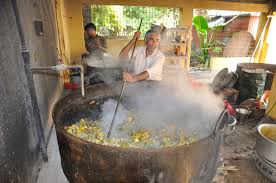
3. Cook in Batches
This should be a no-brainer, and if you're reading this, I'm guessing you already do it.
If you're not getting at least 5 meals out of every time you cook, you're treading water at best. If you're trying to reclaim needlessly wasted kitchen time, a good starting goal is a week of meals per one "cooking".
Aside from raw time savings, there are two key features to this strategy:
1) Cooked food keeps for longer.
2) You won't waste as much food, since you're only going to open what you're going to use (No more: open food container, use half, leave rest for "next time", never get around to "next time", food turns colors/grows things, "next time" arrives months later, open food container, gag, throw away).
If you've ever tossed half a bundle of asparagus, or a mummified onion fragment, or a clove of garlic with a tree growing out of it, then you know exactly what I mean.
To execute this properly, take an average recipe (if you're using one, you pinkies-out, high-maintenance fancypants), and quadruple it. Alternatively, figure out the amount of Key Ingredient you're planning on cooking (chicken, veggies, whatever), see how much it calls for, and adjust other ingredients accordingly.
Or my personal preference, just wing it and see what happens. But make a lot.
If you're a "test the pool before you jump in" kinda person, maybe make a small experimental batch before you go all-in. But once you find a winning combination, double (or quadruple) down.
Which means you'll need storage. General tips:
-Freezers are your friends. If yours is full of pre-edible food, you're not making the best use of it. Reserve at least half your freezer for "If I leave this out for a couple of hours it'll be edible" food, prepped meals that are ready to pop in the microwave and shovel down your gullet at a moment's notice. One night of cooking can easily become a month of fuel if you're making good use of the ol' icebox.
-Don't use plastic. It's bad for you, you can't microwave it, some of it melts in the dishwasher, it's killing everything in the ocean, can't be recycled very easily, etc. Invest in some tough glassware, deal with the extra weight, and thank me later when you're not dying of PVC poisoning.
-Liquid-ish foods keep forever (almost). Stew, chili, soup, curry, all of that stuff can go into suspended animation in your freezer way longer than food that involves try ingredients. Plus, when you thaw them out, sometimes they're better from all that time stewing in their own spices. Anything that's supposed to be crunchy probably isn't the best choice for long-term storage.
4. "Close Enough" Substitutions
For some things, substituting ingredients that look sorta close just plain won't work. Don't believe me? Substitute flour for baking soda in your next cookie batch and find out for yourself.
But for things that are purely flavor-enhancers, there's little penalty for cutting some corners in the name of time savings. This is where any gastronomically-inclined person will roll their eyes with exasperation, and treat you to an extended lecture on how only the freshest ingredients have the right flavor profile blah blah blah.
In reality, unless you're on some cooking reality show, it won't make any difference if you use a lemon "spritz" or lemon juice from a bottle. You can make up the most ground in kitchen efficiency by using a long-lasting "Close Enough" Substitute. Here are some of my favorites, but there are definitely more:
Fresh Garlic---> Garlic powder
Fresh Chopped Onion---> Dried onion flakes
Squeezed/zested/spritzed/juiced citrus---> Juice in a bottle
Pink Himalayan Salt/Sea Salt (ground with a mortar & pestle just before use to release that "special flavor")---> Salt. Like normal, iodized salt. The special flavor of salt is 'salty'.
Fresh minced chili peppers---> Chili flakes
And so on. The key here is that one of them requires some sort of maintenance and preparation, while the acceptable substitute can sit in your cupboard without any attention, and can be prepared by turning its container upside down. Anything more than that, and you should go back to watching your cooking shows.

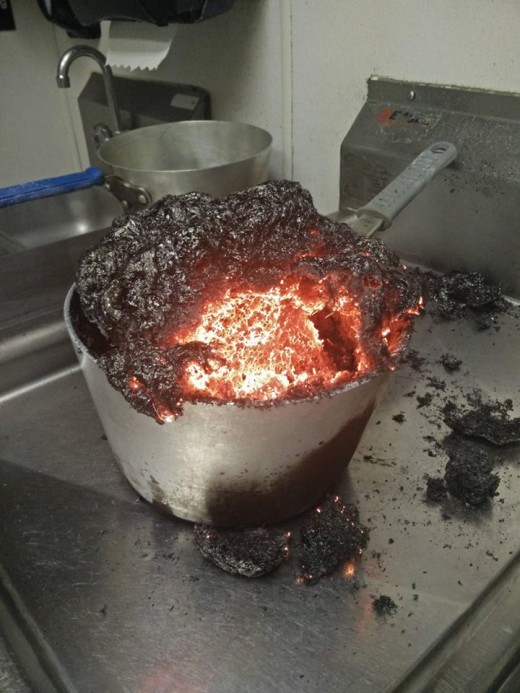
5. Drop the "Picky" Act
As a last word on the subject, how picky you are as an eater is, to me, a source of judgement.
I've never said the journey down a Spartan Kitchen lifestyle will always be a delight. You are going to make some weird food. You are going to produce some odd cooking smells. But if you are going to throw away something for any reason other than "it might actually kill me" (which defeats the whole purpose), then I invite you to consider the following.
By all means, appreciate good food. Truly good, well-prepared food is meant to be savored, enjoyed, lingered over with company, like a well-aged wine from a master vintner.
However, if the goal is to be nourished, provided that you don't have an allergy that will threaten your life, any combination of the right balance of nutrients will do the job. It may not be an orgiastic flavor party in your mouth every time you cook, but then again, this form of cooking exists for the same reason boxed wine exists. Frills are for special occasions, and if they aren't used sparingly, they cease to be special.
To wit: I've invariably found the pickiest eaters to be the most sheltered, least interesting people on Earth; the more 'specialized' the palate, the blander the person it belongs to (ironic, no?). I would way rather hang out with the person who appreciates both good food and 'functional' food for what they are both intended to be, and can enjoy anything on a plate as its own experience. They're the ones that have it right.
The people that miss out on a lot of life are the ones that turn their nose up at a particular vegetable, or something not cooked just to their liking, or seasoned with the wrong kind of cinnamon. They're the person that modifies every order, whines when their favorite microbrew isn't on tap at a local dive bar.
If you fit this bill, time to open up.
Think of your very least favorite (again, non-allergenic) food, and ask yourself how many meals you could tolerate it for if your life was at stake. If the answer is more than one, then Welcome to the Spartan Family!
If your answer was "Ugh I literally couldn't even for a single meal", then I would argue that someone that's truly hungry will eat nearly anything.
Maybe it's time to spend less time in the kitchen, and more time doing things that make you hungry...
